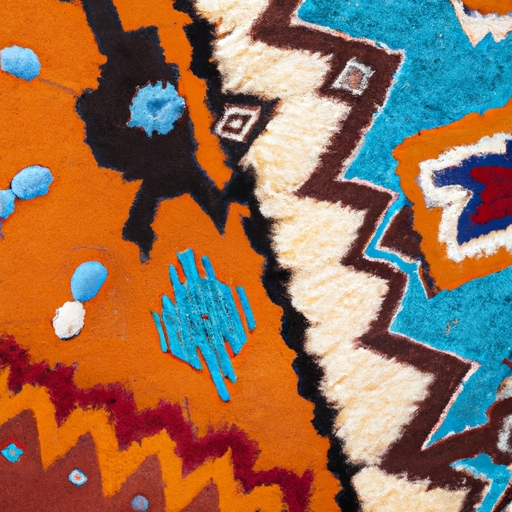
what does michigan mean in native american
History and Evolution of Native American Rug Weaving
Michigan, a state rich in history, holds a deep connection to its native tribes. These indigenous communities have shaped the land and culture of this region for centuries. To truly understand Michigan's roots, we must explore the historical background of these tribes.
The term "Michigan" itself has Native American origins. It derives from the Ojibwe word "mishigamaa," meaning "large water" or "great lake." This name perfectly encapsulates the state's geography as it is surrounded by four of the five Great Lakes – Superior, Huron, Erie, and Michigan.
The indigenous tribes of Michigan are diverse, each with their own unique traditions and languages. The Ojibwe (also known as Chippewa), Potawatomi, and Ottawa nations are among the most prominent in this area. They resided in different regions across the state but often interacted with one another through trade and alliances.
These tribes had a profound understanding of their environment and utilized its resources wisely. They were skilled hunters, gatherers, and fishermen who relied on nature for sustenance. Additionally, they practiced agriculture, growing crops such as corn, beans, and squash.
Michigan's native tribes also had complex social structures. Clan systems played an essential role in their societies; people were organized into different clans based on kinship ties. Each clan had specific responsibilities within the community and played a vital role in maintaining harmony.
Spirituality was deeply ingrained in tribal life. Indigenous people believed that all elements of nature possessed spirits or energies that should be respected. Ceremonies like powwows brought communities together to honor their ancestors through dance, music, storytelling, and traditional rituals.
European colonization greatly impacted Michigan's indigenous population over time. The arrival of French explorers led to increased contact between Native Americans and settlers seeking fur trade opportunities. Sadly, diseases introduced by Europeans caused devastating losses among native communities.
Despite these challenges, Michigan's native tribes have persevered and continue to contribute to the state's cultural tapestry. Today, they actively work towards preserving their traditions and educating others about their rich heritage.
Understanding the historical background of Michigan's indigenous tribes is crucial in acknowledging and appreciating their contributions to this land. By embracing their stories, customs, and resilience, we can foster a greater sense of unity and respect for all who call Michigan home.